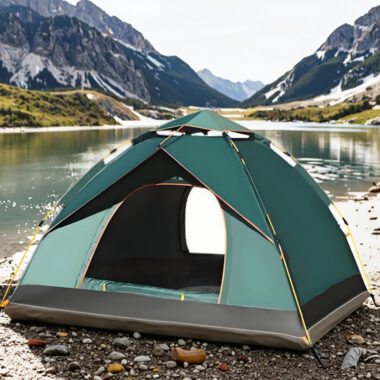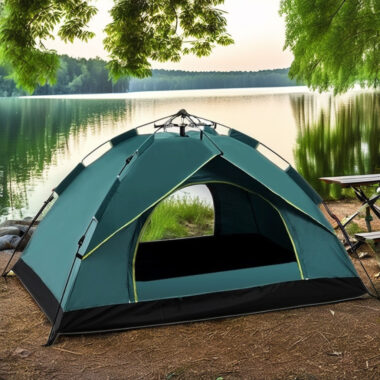💡 1. Why Small MOQ Matters for Tent Buyers
Many new outdoor brands or seasonal retailers hesitate to place large orders for the first time.
A small MOQ (Minimum Order Quantity) allows you to start small, test the market, and refine your design before scaling up.
Professional tent suppliers understand this need — they provide low-volume OEM/ODM production without compromising on quality or material choice.
This flexibility helps small businesses compete with established brands while keeping investment risks low.
🧵 2. Flexible MOQ by Tent Type and Material
MOQ levels vary depending on fabric, size, and complexity.
For simple polyester dome tents, factories often accept 100–200 units per design.
For more complex canvas or glamping tents with custom printing, MOQ may start around 50 sets due to material batching.
Manufacturers who manage their own coating and cutting lines can offer smaller MOQs since they control each stage of production directly.
By discussing your needs early, the factory can adjust purchasing plans to optimize cost and efficiency for your custom model.
⚙️ 3. OEM/ODM Support for Custom Designs
Low MOQ doesn’t mean limited options.
A professional camping tent factory still supports OEM and ODM customization, including:
Fabric type (polyester, nylon, or canvas)
Logo printing and color matching
Custom packaging and carry bags
Optional accessories like poles, ropes, and stakes
Factories use digital printing and automated cutting machines to handle small batches efficiently.
That means your brand can maintain a premium look even with smaller production runs.
💧 4. Quality Control for Small Orders
Even for limited quantities, quality assurance remains consistent.
Each small-batch order goes through the same QC process as bulk production — fabric inspection, seam taping, setup testing, and waterproof verification.
Suppliers who specialize in custom tents often have dedicated sample production teams to manage low-quantity projects quickly and accurately.
Buyers can request detailed QC photos or reports before shipping.
📦 5. Wholesale Programs and Mixed Orders
For distributors or online retailers, many factories now offer mixed-SKU wholesale programs.
This allows you to combine different tent sizes (1–2P, 3–4P, family) within one container.
It’s ideal for Amazon sellers or camping stores that need variety but limited stock.
Factories may also provide ready-to-ship models that can be customized with your logo at minimal extra cost — a fast way to expand your product line.
Some suppliers even handle drop-shipping or maintain small inventory stock for repeat customers.
🚚 6. Lead Time and Shipping Options
Lead times for small orders are typically shorter — around 25–30 days after sample approval.
Factories with integrated production lines can manage both custom and wholesale orders simultaneously.
You can choose shipping terms such as EXW, FOB, or CIF, depending on your logistics plan.
For bulk shipments, export packaging is reinforced with palletized cartons and barcode labeling to ensure safety during transport.
🌍 7. Building Long-Term Cooperation
Many long-term brand partnerships begin with small MOQ projects.
A reliable tent supplier treats each order seriously, whether 50 or 5,000 units.
They record material specs, sewing patterns, and color codes for future reorders.
Once sales volume increases, the factory can easily expand production capacity to match your demand — without re-sampling or new setup costs.
🔍 Final Thoughts
Small MOQ and wholesale solutions make custom camping tents accessible to everyone — from new outdoor startups to established distributors.
By working with a professional OEM/ODM factory, you gain flexibility, brand control, and consistent quality across every shipment.
A good supplier doesn’t just meet quantity; they help your business grow step by step, from sample to full-scale production.








